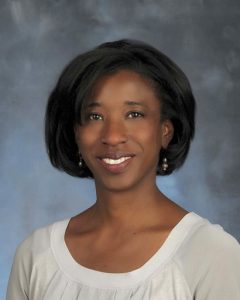This year the National Center for Case Study Teaching in Science is pleased to offer three (3) scholarships to our 2017 Case Study Teaching Fall Conference held on September 15-16, 2017 in Buffalo, NY. Each scholarship includes: complimentary registration, meals served at the conference that are included in the conference registration, lunch both days and dinner on Friday), and up to a $300 stipend towards travel/room-and-board expenses, which will be reimbursed after the conference, with proof of expenses. For more information on the conference including registration, lodging and the conference schedule, please visit the conference website at: http://sciencecases.lib.buffalo.edu/cs/training/conference/
Scholarship Opportunities: (one scholarship in each category) 1. Post-Doctoral Fellow/Graduate Student, 2. K-12 Teacher, 3. College Faculty Member at a school tied to the following documented official designations (these are federally-designated): Hispanic-Serving Institution (HSI), Historically Black College/University (HBCU), Tribal College/University (TCU), or Minority Postsecondary Institution (MPI). Please provide documentation that your school meets these criteria by way of a website link or other document.
To apply for a scholarship, please submit an email application to Carolyn Wright cwright2@buffalo.edu by 5/1/17.
Submission Guidelines: Your application must be submitted according to the following requirements: One (1) PDF, Times New Roman, 11 pt. font, 3 page maximum, with the following pdf file name: category_lastname (ex: postdoc_wright). Only one application/category per person even if you might fall under several categories. The pdf document should contain the following information in the order/line breaks listed below:
1. Last Name, First Name
2. Category (select only one category)
3. Academic Title, Department
4. Institution name
5. Institution address
6. Email address, Phone number
7. What are your goals for teaching?
8. Why do you want to attend our conference?
9. How would you apply what you learn at our conference?
10. How would you share with colleagues what you learn at our conference?
11. If you are applying as a Graduate Student award, please give your expected degree and graduation year.
12. A copy of your CV (curriculum vitae) which is a professional resume. Your CV must be part of the 3 page limit pdf submission. For our purposes, we would like to know your: relevant science/teaching work experience (including related work at a school or private industry, e.g., work experience at a lab), your education, any science/teaching professional organizations you belong to, any publications, courses taught, awards/honors, etc.
 Dr. Johnson, a Howard Hughes Medical Investigator has been instrumental in establishing and supporting the Organization of African-American Students Excelling in STEM (OASES), a program that supports the success of African-American and other minorities in science. She also established a research-based program for first year science majors from underrepresented and underserved groups.
Dr. Johnson, a Howard Hughes Medical Investigator has been instrumental in establishing and supporting the Organization of African-American Students Excelling in STEM (OASES), a program that supports the success of African-American and other minorities in science. She also established a research-based program for first year science majors from underrepresented and underserved groups.




